39 what kind of salt melts ice
No Rock Salt? 5 Homemade Ways to Melt Ice - American ... It's not as quick as salt or rubbing alcohol, but fertilizer can be used as a deicer. Compost is often comprised of ammonium sulfate, potassium chloride or urea, which have warming effects that will slowly melt the ice. 5. Beet juice. Believe it or not, beet juice can be used to melt ice when it's mixed with a water-based salt brine. Why Does Salt Melt Ice, and What Else Is It Doing? January 29, 2021 - It helps keep our roads clear of ice and snow, but there's a big environmental cost.
What is the Difference Between Rock Salt and Ice Melt ... January 20, 2022 - Rock salt and ice melt each have distinctive characteristics. Read on to find which one is best for your situation.

What kind of salt melts ice
What kind of ice melt does not damage concrete? Magnesium chloride is the newest deicing salt. It continues to melt snow and ice until the temperature reaches -13 F. The salt releases 40% less chloride into the environment that either rock salt or calcium chloride. Secondly, what kind of salt does not damage concrete? The latest deicing salt to hit the market, however, ... Different Types of Salts Used to Melt Snow and Ice | Hunker Rock salt, or sodium chloride, is a common ingredient used to melt snow and ice on sidewalks, driveways and road surfaces. But it can be corrosive, irritate skin and harm pets. Other options include various types of chloride and combinations. 5 Types Of Ice Melt And Their Pros And Cons - Safe Paw Understanding the differences between various types of ice melt products can make a big difference in how effectively you can reduce the quantity of snow and ice around your structure. Although rock salt is the most widely used and recognized de-icer, there are other formulae and solutions that can be more effective in particular circumstances ...
What kind of salt melts ice. Don't Salt Your Steps: Winter Technical Tips - New York ... 4. Magnesium chloride is the newest deicing salt. It continues to melt snow and ice until the temperature reaches -13 F. The salt releases 40% less chloride ... Why Does Salt Melt Ice? - Ice Melter Distributor | Salt Supplier ... November 19, 2013 - Salt is the primary component in most of today’s ice melter products. Rock Salt, Calcium Chloride, Magnesium Chloride, and Potassium Chloride all contain a considerable amount of salt in them. If you live in a cold climate with frequent snowfalls, then you have probably seen people spreading ... How rock salt melts ice, and why less is often more - WHYY February 13, 2015 - The question is not, “To salt, ... “What kind of salt? And in what form?” · Each winter, Philadelphia uses 20,000 to 40,000 tons of rock salt to keep its roads ice-free. In a bad season, like last year, that number can balloon to more than 80,000 tons. But what is actually happening when salt melts ice and snow, ... Why Salt Melts Ice | Easy Science for Kids - Science Kiddo October 9, 2019 - Fun, easy, and quick kitchen science experiment for kids of all ages. Perfect for winter science experiments and lessons Learn how salt melts ice, go fishing, and "catch" some for yourself! Awesome STEM activity that is simple enough for preschool, yet entertaining enough for older kids and ...
Why Does Salt Melt Ice? | Britannica In water, salt is a solute, and it will break into its elements. So, if you're using table salt, also known as sodium chloride (NaCl), to melt ice, the salt will dissolve into separate sodium ions and chloride ions. Often, however, cities use calcium chloride (CaCl 2), another type of salt, on their icy streets. Calcium chloride is more ... How To Melt Snow & Ice Without Using Salt - CF Landscaping In turn, when the snow melts to water, the water and salt mixture will melt ice (salt will not melt ice on its own). But if temperatures are colder than 0ᐤ F, small amounts of salt probably won’t work and you’ll need to apply even more. Does Regular Table Salt Melt Ice? Can You Use It? - House ... The more ice the table salt granules get into contact with, the faster it is able to melt ice. A way to melt ice even faster with table salt is by dissolving it first in water. The more salt you dissolve in the water, the lower the freezing point of the salt solution. Quick Answer: Which Salt Melts Ice The Fastest Science ... Because baking soda is a kind of salt, it can lower the freezing point for ice, accelerating the melting process. Plus, it's less alkaline than calcium chloride, the salt commonly used for melting ice, which can corrode surfaces like bricks or concrete.
What kind of salt will melt ice the fastest? - AnswerThirst Types. Potassium chloride, rock salt, magnesium chloride and calcium chloride are the most common ice-melting salts used today. Ice melters are not naturally hot; they do not melt ice as the term suggests, but rather, they act to depress or lower the freezing point of the snow or ice they are spread on. Salt Melting Ice | Science project | Education.com Label these containers with the kind of salt that will be added to it. Sprinkle an even amount of each kind of salt in each separate container. Now, you'll just have to wait to see what happens! 10-minute intervals are good times to check on the ice. Observe the progress of the melting ice and record your findings until all the ice has melted. How Do You Melt Ice On A Gravel Driveway Without Salt ... Epsom salt, also called Magnesium Sulfate, can be used for melting ice in the same process as normal salt. The freezing point of ice is lowered and thereby melting the ice or snow. The main advantage, however, is that Epsom salt is softer and safer for plants and animals. What temperature will SALT not melt ice? - AskingLot.com This makes the ice with salt on it melt faster. Try putting ice in a glass of cold water. Leave it there for 10 minutes or so. Then, does salt melt ice at 20 degrees? A 10-percent salt solution freezes at 20 degrees Fahrenheit (-6 Celsius), and a 20-percent solution freezes at 2 degrees Fahrenheit (-16 Celsius). The key is, there has to be at ...
How Does Salt Melt Ice? - YouTube This week Reactions is look at the science behind rock salt and how it melts ice. We're breaking down the chemistry that keeps the roads safe when bad weathe...
What kind of salt melts ice? - TreeHozz.com Types. Potassium chloride, rock salt, magnesium chloride and calcium chloride are the most common ice-melting salts used today. Ice melters are not naturally hot; they do not melt ice as the term suggests, but rather, they act to depress or lower the freezing point of the snow or ice they are spread on.
Amazon.com : Ice Melt Salt Natural Rapport Pet Friendly Ice Melt - Calcium Chloride Free, Pet Safe Ice Melter, Rock Salt Alternative - Time Release Deicer Formula Lasts 3X Longer (10 lb) · REDMOND Ice Slicer - Ice Melt Salt, Kid & Pet Safe Deicer, All-Natural Granular Ice Melt (10 LB) · Green Gobbler Pet Safe Ice Melt ...
What Type of Salt Melts Ice the Fastest? | Hunker 01:33. 01:33. Tip. There are two types of salt traditionally used to melt ice on hard surfaces. One is rock salt, which has sodium chloride. Rock salt's advantage is that it provides good traction. Salt with a combination of sodium chloride, calcium chloride and magnesium chloride melts ice faster, but it provides less traction.
Will salt work to melt ice in extremely cold temperatures ... Below is a list of the temperatures and what one pound of salt can melt, according to Cargill. 30° - 1 pound of salt melts about 46 pounds of ice. 20° - 1 pound of salt melts about 9 pounds ...
What kind of salt should I use on my asphalt driveway? The reason is simple: salt not only melts ice by lowering the freezing point of water, it also provides added traction once said melting is done. In fact, one pound of salt can melt roughly 46.3 pounds of ice! Kitty litter, on the other hand, is nothing but glorified clay.
Snow and Ice Melt Buying Guide - Lowe's The type of ice melt you choose should be based on several factors, including average outdoor temperature and if it'll come in contact with plants, animals or children. Here are the most common ice melt active ingredients: Sodium Chloride (NaCl) Also known as ice melt salt/rock salt; Melts ice and snow by lowering the freezing point of water
Does Cat Litter Melt Ice? - Neeness Salt Ice Melt Or rather spreading it on my sidewalk or driveway where ice materializes this winter. Salt is the most popular way to get rid of ice. The most common form of salt that is used to melt ice is rock salt, but you can also use table salt, it will just provide you with less traction when stepped on.
Amazon.com: driveway salt North American Salt ice melter comes in a 50-pound bag and melts ice down to -25 degrees Fahrenheit. It can be used on patios and more, too. If someone needs a lot of salt, they need this bag.
Sea ice - Wikipedia As the sea ice melts, its surface area shrinks, diminishing the size of the reflective surface and therefore causing the earth to absorb more of the sun's heat. As the ice melts it lowers the albedo thus causing more heat to be absorbed by the Earth and further increase the amount of melting ice.
Epsom salt and ice: will epsom salt melt ice? Epsom salt melts ice and snow at a fairly low temperature. When it reaches a certain temperature, Epsom salt begins to absorb heat from the environment and melt the surrounding ice or snow. However, this only works in very cold conditions, when the temperature is below 5 degrees Celsius. YouTube / Gorgeous Gardens of Utah.
Amazon.com : HARRIS Kind Melt Pet Friendly Ice Melt, Fast ... Works Immediately - Instantly melts ice on driveways, sidewalks, steps, balconies, patios, walkways, roadways and more . Effective at Low Temps - Magnesium Chloride formula works at temperatures down to -13 degrees Fahrenheit . Less Corrosive - Kinder to the environment than traditional rock salt ice melters and less corrosive to concrete
What Is The Safest Ice Melt For Driveways There are two types of salt traditionally used to melt ice on hard surfaces. One is rock salt, which has sodium chloride. Rock salt's advantage is that it provides good traction. Salt with a combination of sodium chloride, calcium chloride and magnesium chloride melts ice faster, but it provides less traction.
Is there salt in ice melt? - AskingLot.com Salt Lowers the Freezing Point In a nutshell, salt is a great ice melter because it causes "freezing point depression." This means that salt helps in lowering the freezing point and, consequently, the melting point of water (the main component of snow and ice). It must be noted, however, that salt alone can't melt ice.
Salt Doesn't Melt Ice--Here's How It Makes Winter Streets Safer ... December 2, 2019 - Salt that’s dumped on top of ice relies on the sun or the friction of car tires driving over it to initially melt the ice to a slush that can mix with the salt and then won’t refreeze. Pre-treating with solid salt relies on the warmer road surface to initially melt any snow or freezing ...
Rock Salt Vs. Table Salt to Melt Ice - Sciencing April 20, 2018 - Both rock salt and table salt lower the freezing point of water, but rock salt granules are larger and may contain impurities, so they don't do it as well.
What's the Difference Between Ice Melt and Rock Salt? | The Family ... October 25, 2021 - Live in area where winter means lots of slippery ice? Ice salt can help you avoid a painful fall. Learn about rock salt, ice melt, and how they work.
Why do we put salt on icy sidewalks in the winter? - Scientific ... December 26, 2005 - The actual reason that the application of salt causes ice to melt is that a solution of water and dissolved salt has a lower freezing point than pure water. When added to ice, salt first dissolves in the film of liquid water that is always present on the surface, thereby lowering its freezing ...
What salt is safe for sidewalks? | QA Club Calcium chloride is the best ice melt for concrete It can work at much lower temperatures, so there is a much lower risk of enhancing the freeze-thaw cycle like rock salt. Its low actual working temperature prevents the melting of ice from refreezing and putting pressure on the concrete, causing exfoliation.
The 5 Types Of Dangerous Ice Melting Salts - Dangerous Salts There are actually different types of road salts used to help combat snow, slush, and ice on roadways during the winter months. The five of the more common types of road salts used in deicing operations are sodium chloride or rock salt, magnesium chloride, calcium chloride, potassium chloride and salt blends. 1.
What is the Best Ice Melt? The best ice melt to buy in bulk at the most affordable rate is Rock Salt. Rock Salt is the most common ice melt seen on road surfaces due to its accessible nature and low cost. Rock Salt is nearly 100% Sodium Chloride, which allows it to melt large quantities of snow and ice. This product is effective in temperatures above 15°F.
Why Does Salt Melt Ice? Understanding How It Works Salt melts ice and help prevent re-freezing by lowering the freezing point of water. This phenomenon is called freezing point depression. The working temperature range isn't the same for all types of salt. For example, calcium chloride lowers the freezing point more than sodium chloride. In addition to melting ice, freezing point depression can ...
Ice Melt Is Ice Melt. Here's How to Use It. April 3, 2020 - Consumer Reports shows you how to use ice melt to de-ice your driveway without doing damage—to concrete, plantings, and pets' paws.
What Kind Of Salt Do You Put On Ice To Melt There are two types of salt traditionally used to melt ice on hard surfaces. One is rock salt, which has sodium chloride. Rock salt's advantage is that it provides good traction. Salt with a combination of sodium chloride, calcium chloride and magnesium chloride melts ice faster, but it provides less traction.
Ice Melt For Concrete - Safe Paw Ice Melt | Safe for Pets It’s a one-of-a-kind compound with a time-released action because it’s completely salt-free. It has a non-corrosive structure with a crystalline amide core that is injected with glycols. Unlike rock salt and other salt-based ice melting products, which include potassium chloride or sodium chloride and can only melt ice to a temperature of ...
What melts ice besides rock salt? - AskingLot.com What kind of salt melts ice? Types. Potassium chloride, rock salt, magnesium chloride and calcium chloride are the most common ice-melting salts used today. Ice melters are not naturally hot; they do not melt ice as the term suggests, but rather, they act to depress or lower the freezing point of the snow or ice they are spread on.
Which Type Of Salt Melts Ice The Fastest Science Project ... Which Salt Melts Ice Faster Science Project Recipes with ingredients,nutritions,instructions and related recipes - 2015-06-18 · Step four: I think that the rock salt will melt the ice the fastest because it is the one with the biggest pieces of salt. Also, it is the type of salt that people use to melt the roads when they are icy.
Rock Salt vs. Ice Melt and How to Use Them Correctly November 30, 2021 - Merchants Insurance Group, headquartered in Buffalo, NY provides a variety of commercial insurance and personal insurance, property and casualty insurance.
10 Best Non Salt Ice Melt In 2022 - Expert Review - Aids Quilt 4. What is the non salt ice melt? Sorry if you're perplexed. I know it's not an easy choice! But it's one of the most crucial choices you'll ever make. If you're still unsure which type of non salt ice melt is best for you, I recommend comparing the characteristics and functionalities of the non salt ice melt listed above.
5 Types Of Ice Melt And Their Pros And Cons - Safe Paw Understanding the differences between various types of ice melt products can make a big difference in how effectively you can reduce the quantity of snow and ice around your structure. Although rock salt is the most widely used and recognized de-icer, there are other formulae and solutions that can be more effective in particular circumstances ...
Different Types of Salts Used to Melt Snow and Ice | Hunker Rock salt, or sodium chloride, is a common ingredient used to melt snow and ice on sidewalks, driveways and road surfaces. But it can be corrosive, irritate skin and harm pets. Other options include various types of chloride and combinations.
What kind of ice melt does not damage concrete? Magnesium chloride is the newest deicing salt. It continues to melt snow and ice until the temperature reaches -13 F. The salt releases 40% less chloride into the environment that either rock salt or calcium chloride. Secondly, what kind of salt does not damage concrete? The latest deicing salt to hit the market, however, ...



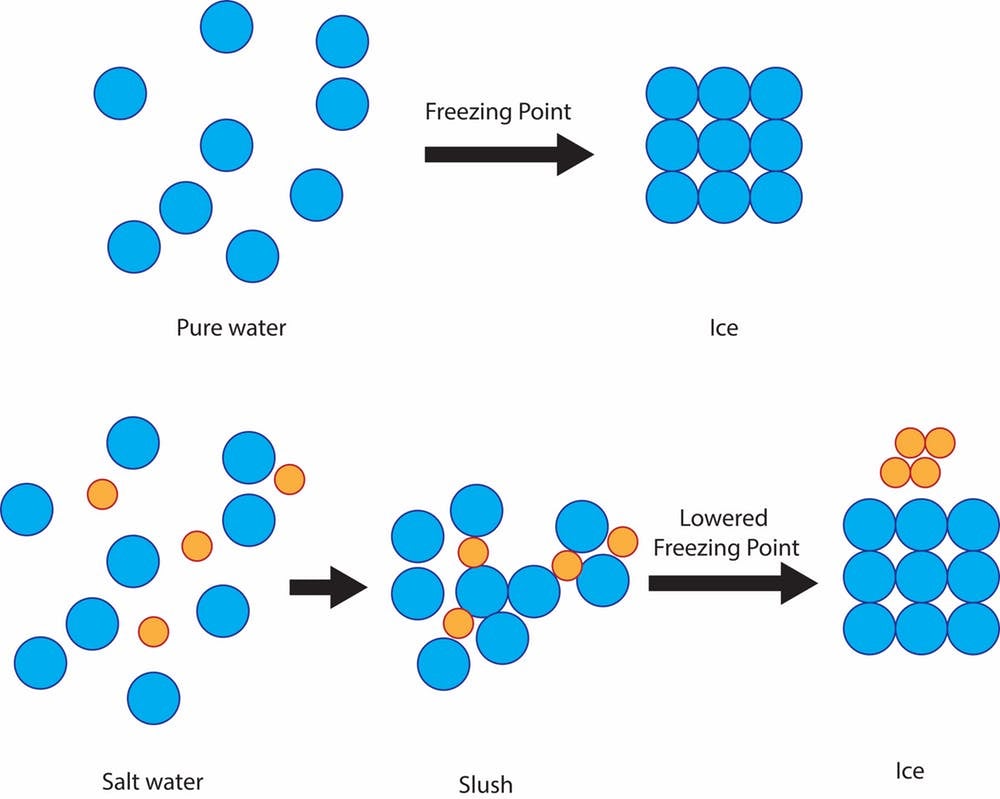



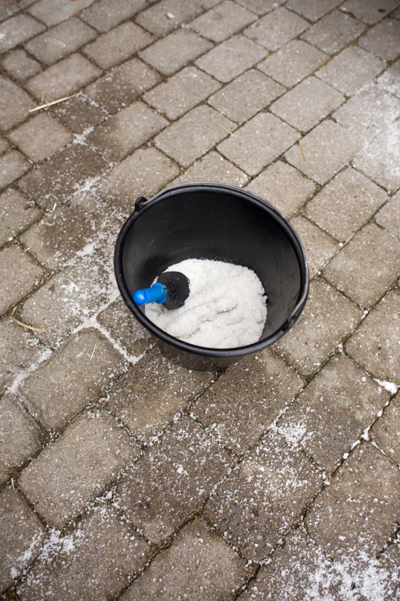


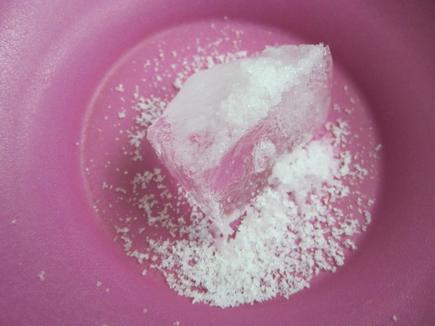

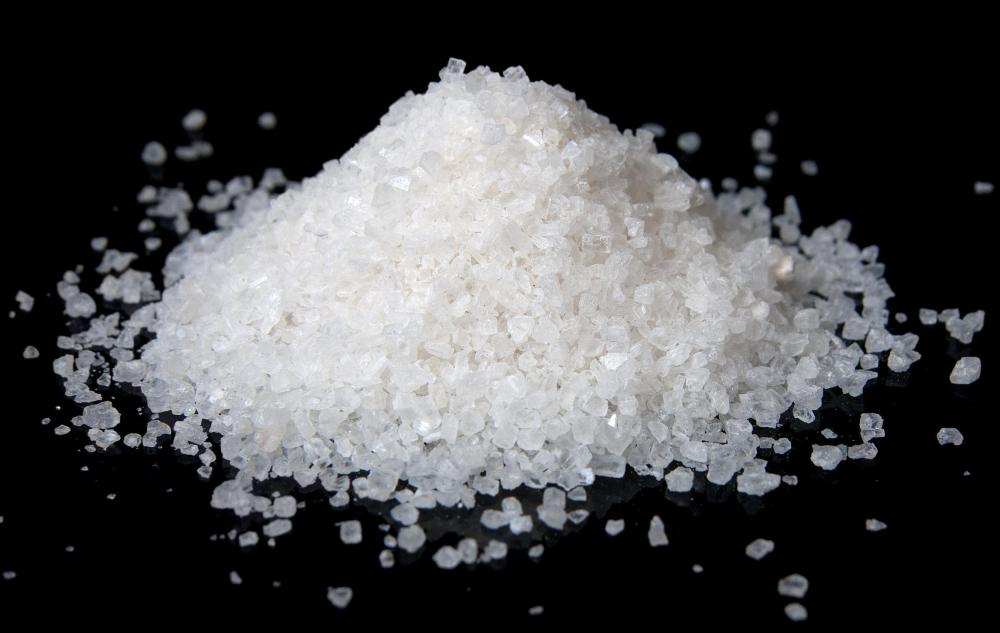

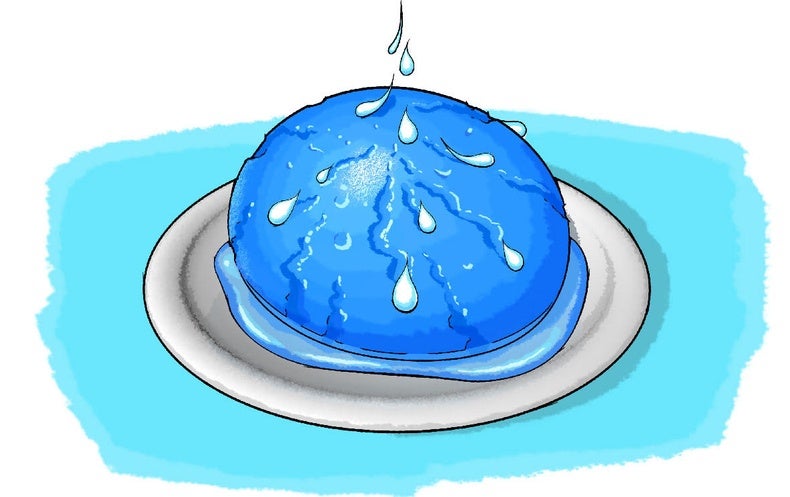




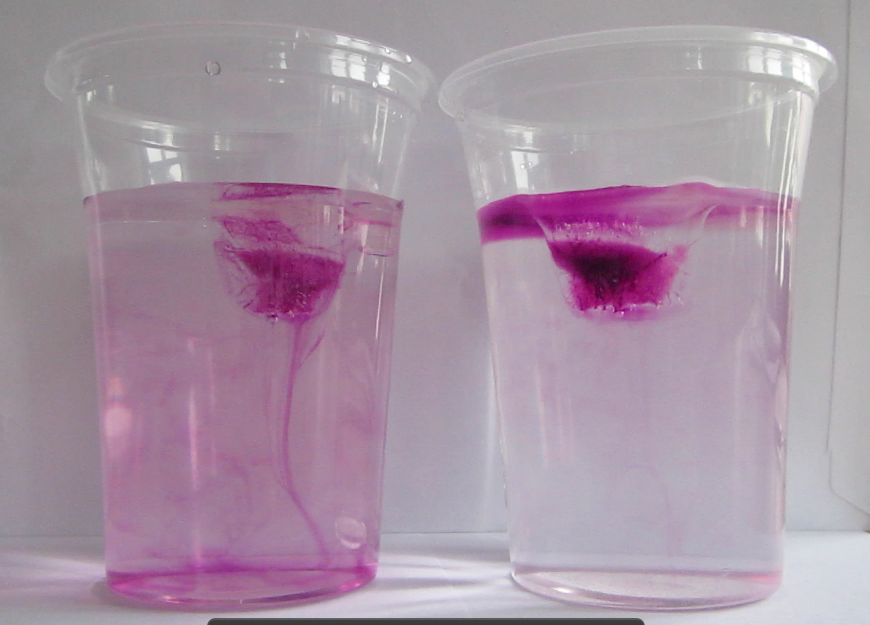

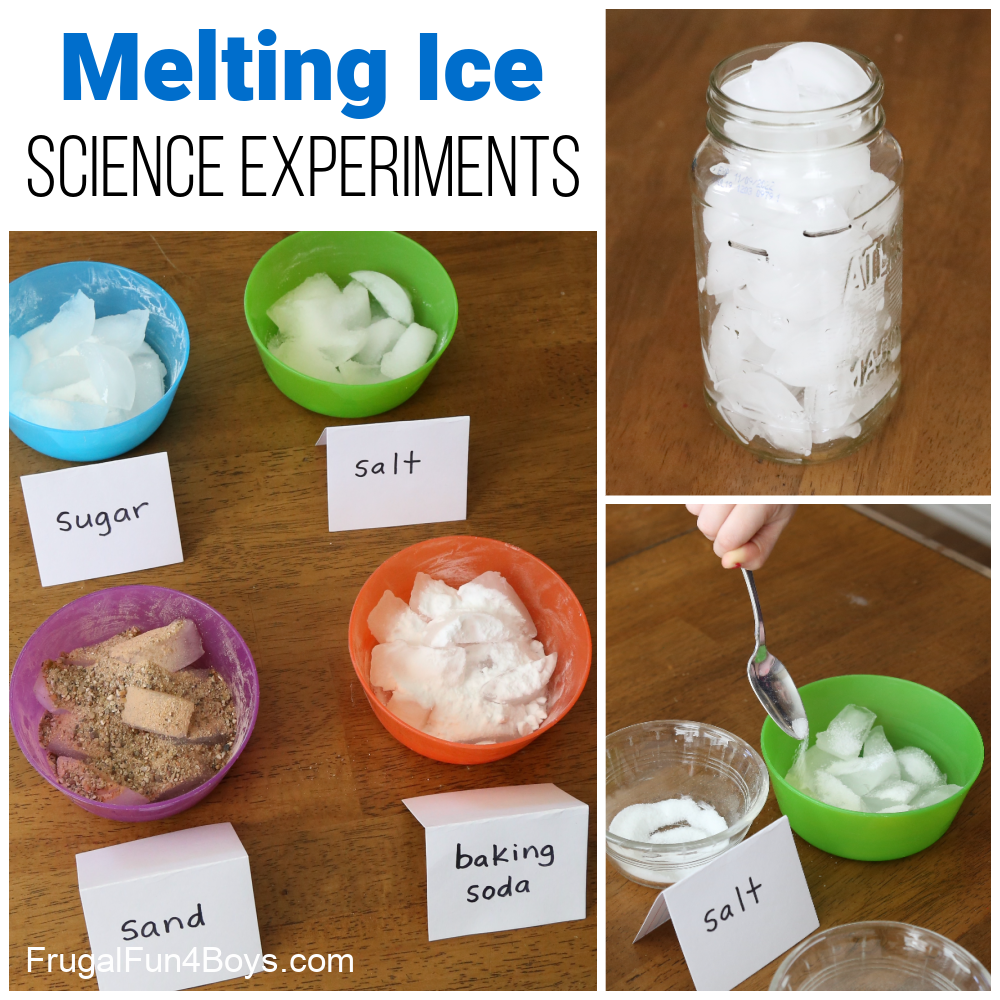
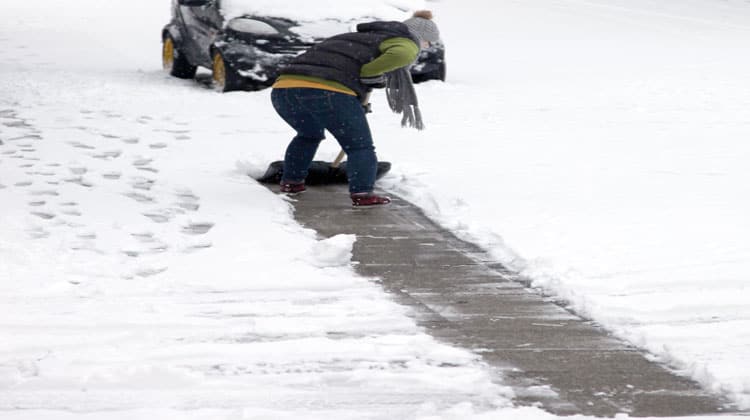
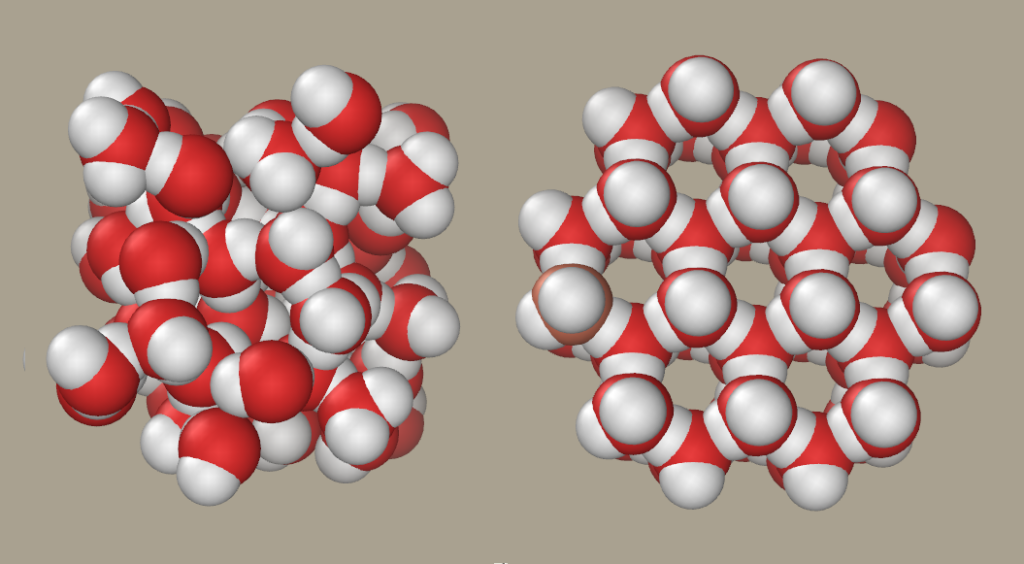
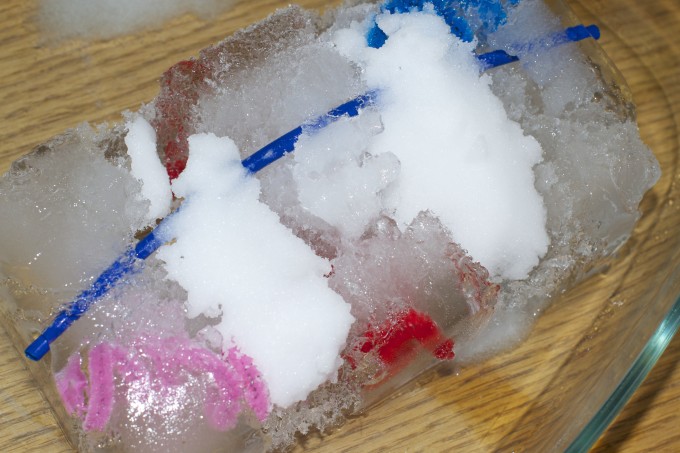
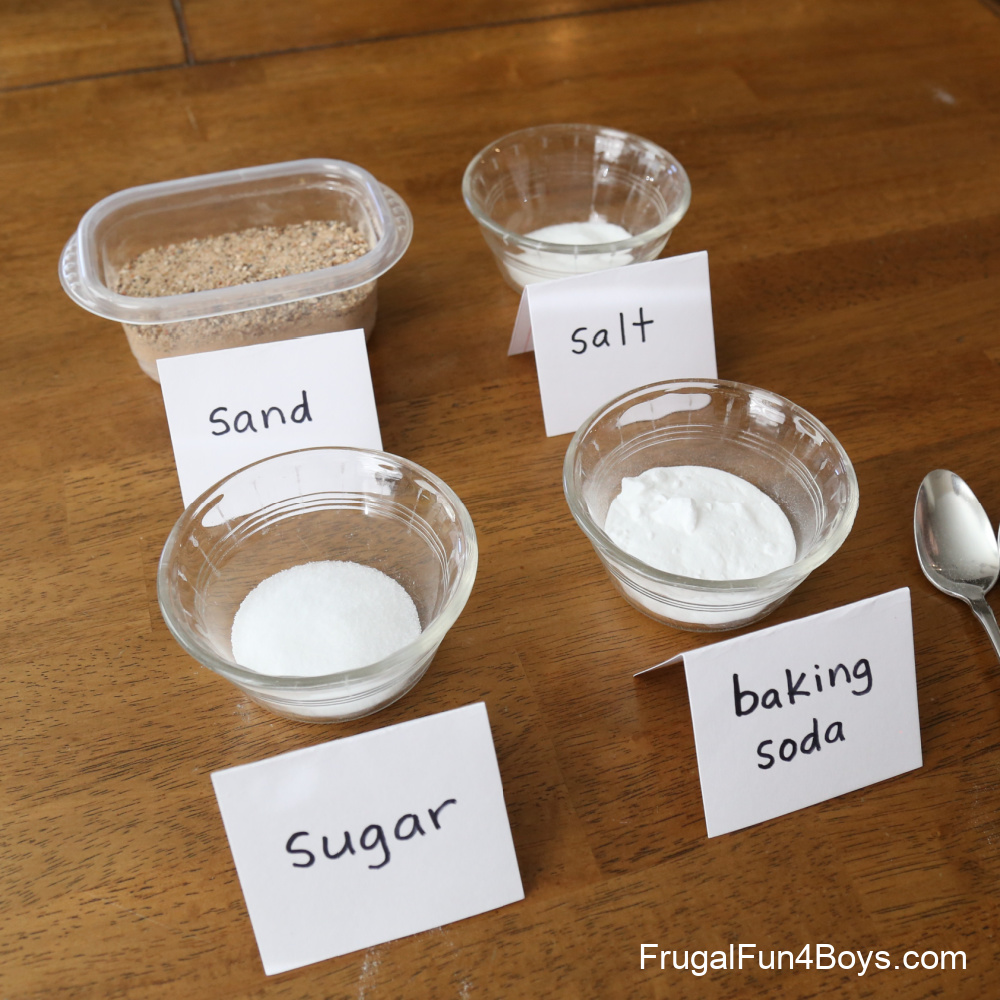







0 Response to "39 what kind of salt melts ice"
Post a Comment